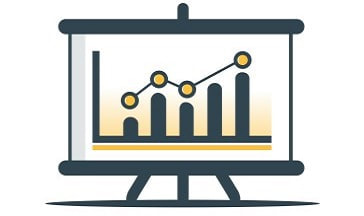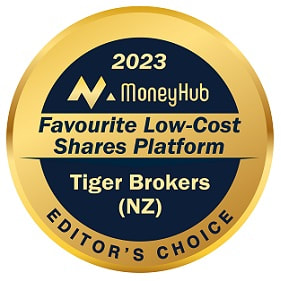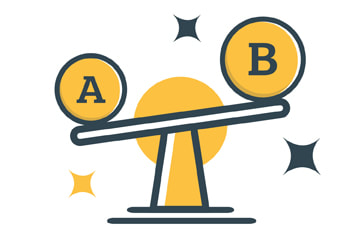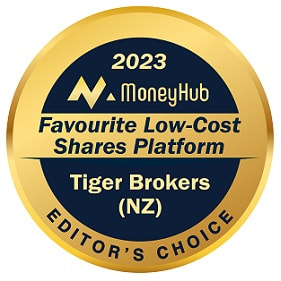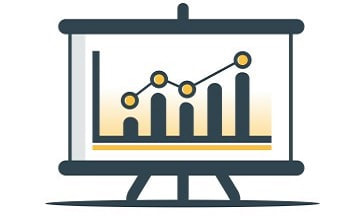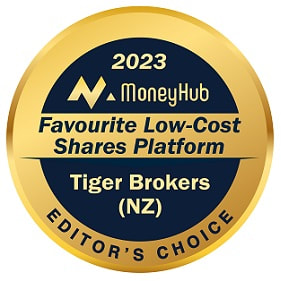Futures Trading in New Zealand
Futures are a sophisticated financial instrument used for risk management, investment and speculation. This guide introduces you to the concept of futures contracts and how to trade them in New Zealand.
Updated 22 July 2024
Summary
To help you understand what you need to know, our guide covers:
Know This First: Risks of trading futures
Summary
- Futures contracts are derivatives traded on exchanges worldwide to speculate on dozens of asset classes.
- A key characteristic of futures is leverage, meaning traders only need to provide the margin for a fraction of the contract value.
- A futures contract is an agreement between a buyer and seller to exchange an asset at a future date for a predetermined price.
- Futures contract specifications vary depending on the underlying product and exchange venue, but typically, futures can be settled physically through physical delivery or paying the difference in cash.
- Futures contracts have fixed expiry dates; contracts cannot be closed early. To exit the position, traders need to either sell the contract, which can be difficult. More commonly, traders buy a contract opposite to their current position to offset the exposure, essentially closing the position.
- Futures markets deviate from the spot price of the underlying asset because traders are speculating on future prices, months or years in the future.
- From New Zealand, you can trade futures with Tiger Brokers, Interactive Brokers, Jarden and others.
- In most parts of the world, where they are permitted, retail traders favour contracts for difference over futures due to their simplicity. Futures markets have important functions for businesses.
To help you understand what you need to know, our guide covers:
- Introduction to futures
- How futures contracts work
- Why trade futures?
- New Zealand futures market
- Futures compared other derivatives such as CFDs, options and forwards
- Futures brokers for New Zealand residents
- Top 5 futures exchanges
- Frequently asked questions
Know This First: Risks of trading futures
- Futures contracts are a leveraged product, meaning risks are not only amplified because traders can borrow to open larger positions, but margin call becomes a factor too.
- A margin call happens when your trading account balance is too small to sustain an unprofitable position so the broker forces liquidation whether you like it or not.
- Futures have a lot of downside, and you may lose significant amounts of money. Our guide outlines the key information that's important to know as you consider whether trading futures is right for you.
If you want to trade Futures, please be aware of the significant risks. Tiger Brokers (NZ) is our Favourite Low-Cost Shares Platform in our 2023 Editor's Choice Awards and offers Futures Trading:
MoneyHub’s Editor Christopher Walsh says: "Tiger Brokers is focused on global investing, and at a time when some other platforms have raised their fees, Tiger Brokers is around half the cost of its nearest competitor for US stock trades. Tiger Brokers is the only global online player to have a local Auckland-based team and to be regulated in New Zealand. It focuses on delivering low fees to global market investors looking to build wealth using shares, futures and options. It continues to innovate and has recently launched auto-invest, fractional shares and its own TigerGPT investment chatbot." |
Introduction to futures
The term futures is well-known and regularly discussed on major market commentary and news channels like Bloomberg, MSNBC and others. But, this complex derivative instrument isn’t clear to most amateur traders.
Futures contracts are one of many complex derivative products the financial markets have to offer. Futures are exchange-traded products traded on exchanges like Chicago Mercantile Exchange, Intercontinental Exchange, New Zealand Exchange, London Metal Exchange, etc. Most stock exchanges also facilitate futures markets alongside other instruments, such as options.
Futures are used for trading pretty much any financial market. You can use futures to trade stocks, gold, oil, currencies, corn, orange juice, milk powder and much more. Different exchanges specialise in different markets. For example, the New Zealand Exchange specialises in dairy derivatives, where 7,365 tons of dairy contracts were traded on a record-setting day.
According to the Futures Industry Association, the worldwide volume of exchange-traded derivatives was 5.04 billion contracts in June 2021, the second-highest record after March 2021. These data imply futures trading is on the rise.
Futures trading is very popular with retail traders in the United States, whereas futures are primarily an institutional product in other parts of the world. In New Zealand, Australia, Canada, the UK, Europe and a few other developed and open financial markets, the choice derivative for retail investors is contracts for difference. However, CFDs are prohibited in the United States.
Futures contracts are one of many complex derivative products the financial markets have to offer. Futures are exchange-traded products traded on exchanges like Chicago Mercantile Exchange, Intercontinental Exchange, New Zealand Exchange, London Metal Exchange, etc. Most stock exchanges also facilitate futures markets alongside other instruments, such as options.
Futures are used for trading pretty much any financial market. You can use futures to trade stocks, gold, oil, currencies, corn, orange juice, milk powder and much more. Different exchanges specialise in different markets. For example, the New Zealand Exchange specialises in dairy derivatives, where 7,365 tons of dairy contracts were traded on a record-setting day.
According to the Futures Industry Association, the worldwide volume of exchange-traded derivatives was 5.04 billion contracts in June 2021, the second-highest record after March 2021. These data imply futures trading is on the rise.
Futures trading is very popular with retail traders in the United States, whereas futures are primarily an institutional product in other parts of the world. In New Zealand, Australia, Canada, the UK, Europe and a few other developed and open financial markets, the choice derivative for retail investors is contracts for difference. However, CFDs are prohibited in the United States.
How futures contracts work
A futures contract is an agreement between a buyer and seller to exchange an asset at a future date for a predetermined price. Futures contracts are traded on exchanges. The exchanges are responsible for providing a safe and transparent trading environment for participants. Futures exchanges standardise contract specifications for different assets, ensuring consistency, especially for commodity products with varying fineness, purity and quality levels. With support from clearinghouses and registered brokers, futures exchanges ensure buyers and sellers meet their obligations to each other.
Futures contract specifications
Contract specifications vary depending on the underlying product. For example, one the CME futures exchange;
Other specifications that vary depending on the product and exchange are trading hours, quote currency, tick size and contract name.
- The product symbol for gold futures is GC. The contract size is 100 troy ounces, contracts are quoted in USD per troy ounce, and the minimum price movement is in increments of 10 cents, equal to US$10 per contract.
- The product symbol for euro FX futures is 6E. The contract size is 125,000 euro, contracts are quoted in USD per euro, and the minimum price movement is in increments of 0.00005 cents, equal to US$6.25 per contract.
- The product symbol for crude oil futures is CL. The contract size is 1,000 42-gallon barrels of oil, contracts are quoted in USD per barrel, and the minimum price movement is in increments of one cent, equal to US$10 per contract.
- The product symbol for natural gas futures is NG. The contract size is 10,000m British thermal units (MMBtu), contracts are quoted in USD per MMBtu, and the minimum price movement is in increments of US$0.001, equal to US$10 per contract.
- The product symbol for soybean futures is ZS. The contract size is 5,000 bushels, contracts are quoted in USD per bushel, and the minimum price movement is in increments of 0.0025 cents, equal to US$12.50 per contract.
Other specifications that vary depending on the product and exchange are trading hours, quote currency, tick size and contract name.
Contract durations
Futures contracts have expiration dates, typically with monthly or quarterly periods. Exchanges will host futures markets leading years into the future. However, the nearest contract is typically the most active. On the CME futures exchange, you can trade gold futures contracts more than five years into the future and crude oil contracts expiring more than ten years in the future.
Contract expiries are identified by adding a letter and year following the product symbol. For example, CLK2022 means May 2022 crude oil futures contracts.
The letters used to reference months are:
Contract expiries are identified by adding a letter and year following the product symbol. For example, CLK2022 means May 2022 crude oil futures contracts.
The letters used to reference months are:
- F = January
- G = February
- H = March
- J = April
- K = May
- M = June
- N = July
- Q = August
- U = September
- V = October
- X = November
- Z = December
Futures contract settlement methods
Futures contracts can be settled physically, where the seller physically delivers the product to the buyer when the contract expires. Or the parties can settle the difference in cash. Exchanges determine settlement methods and rules for physical delivery. Traders using futures to speculate on different markets will favour cash settlement over physical delivery.
Closing a futures contract
As futures contracts have fixed expiry dates, contracts cannot be closed early. One way traders can exit their position is to sell the contract to another trader, which can be difficult. More commonly, traders buy a contract opposite to their current position to offset the exposure, essentially closing the position. For example, if a trader has a long futures contract, they buy a short contract, essentially cancelling any risk as profits from one position cover losses from the other; this is known as a hedge.
Why trade futures?
Companies use futures for risk management and hedging; they’re also used for speculating on the underlying financial markets. We’ve prepared a few use cases for futures contracts:
1. Futures for risk management
Suppose the USD/NZD exchange rate is 0.75 and a US company begins developing a holiday resort in New Zealand. It needs to pay hundreds of construction workers, architects, project managers for two years. The resort developer estimates the project will cost NZ$5 million per month for two years, equivalent to US$3.75 million per month.
If the USD/NZD rate rises to 0.8 on a given month, it means the US company needs to convert US$4 million to cover its monthly costs, whereas if the rate falls to 0.7, the company only needs to convert US$3.5 million.
In total, the US company has budgeted US$90 million based on the USD/NZD exchange rate of 0.75, but the company doesn’t want to take this much money from its balance sheet in one piece. It would rather pay expenses monthly, except this exposes the company to foreign exchange risk. Instead, the company can use futures contracts with leverage to secure the exchange rates in the future. The company can buy 50 long NZD futures contracts and only needs to provide a US$1,900 margin per contract and pay US$1.60 per contract.
For almost US$2,000 in fees, the resort developer eliminates its foreign exchange risk on a US$90 million project.
2. Futures for hedging
Suppose a hedge fund manager just bought 1,000 Amazon shares for US$3,500 each and several regulatory changes affecting Amazon’s business operations came into effect, triggering a sell-off. The fund manager can short 1,000 Amazon shares to offset the expected losses. While the fund has a long position from shares it owns and a short position from a futures contract, the fund doesn’t make or lose any money from Amazon price fluctuations.
Using technical analysis, the fund manager expects prices will fall to approximately US$2,800 before beginning to recover. Supposing the price falls to US$2,800 at the contract expiry, the fund manager captures US$700,000, which only becomes profit once Amazon shares start increasing. Essentially the fund manager has adjusted their AMZN entry from US$3,500 to US$2,800.
3. Futures for speculating
Suppose the price of gold is $2,000 per troy ounce and a hedge fund manager expects the price of gold to fall in the next 30 days. Since the fund doesn’t own or have a long position in gold, they can’t sell to realise profits from existing positions. With a futures contract, the hedge fund can open a short position for one gold contract. With leverage, they can open a position with US$200,000 notional value with just a US$9,000 margin.
Supposing the hedge fund was correct, and the price of gold fell to US$1,810 per troy ounce on the expiry date, they settle the futures contract in cash and realise a profit of US$19,000.
1. Futures for risk management
Suppose the USD/NZD exchange rate is 0.75 and a US company begins developing a holiday resort in New Zealand. It needs to pay hundreds of construction workers, architects, project managers for two years. The resort developer estimates the project will cost NZ$5 million per month for two years, equivalent to US$3.75 million per month.
If the USD/NZD rate rises to 0.8 on a given month, it means the US company needs to convert US$4 million to cover its monthly costs, whereas if the rate falls to 0.7, the company only needs to convert US$3.5 million.
In total, the US company has budgeted US$90 million based on the USD/NZD exchange rate of 0.75, but the company doesn’t want to take this much money from its balance sheet in one piece. It would rather pay expenses monthly, except this exposes the company to foreign exchange risk. Instead, the company can use futures contracts with leverage to secure the exchange rates in the future. The company can buy 50 long NZD futures contracts and only needs to provide a US$1,900 margin per contract and pay US$1.60 per contract.
For almost US$2,000 in fees, the resort developer eliminates its foreign exchange risk on a US$90 million project.
2. Futures for hedging
Suppose a hedge fund manager just bought 1,000 Amazon shares for US$3,500 each and several regulatory changes affecting Amazon’s business operations came into effect, triggering a sell-off. The fund manager can short 1,000 Amazon shares to offset the expected losses. While the fund has a long position from shares it owns and a short position from a futures contract, the fund doesn’t make or lose any money from Amazon price fluctuations.
Using technical analysis, the fund manager expects prices will fall to approximately US$2,800 before beginning to recover. Supposing the price falls to US$2,800 at the contract expiry, the fund manager captures US$700,000, which only becomes profit once Amazon shares start increasing. Essentially the fund manager has adjusted their AMZN entry from US$3,500 to US$2,800.
3. Futures for speculating
Suppose the price of gold is $2,000 per troy ounce and a hedge fund manager expects the price of gold to fall in the next 30 days. Since the fund doesn’t own or have a long position in gold, they can’t sell to realise profits from existing positions. With a futures contract, the hedge fund can open a short position for one gold contract. With leverage, they can open a position with US$200,000 notional value with just a US$9,000 margin.
Supposing the hedge fund was correct, and the price of gold fell to US$1,810 per troy ounce on the expiry date, they settle the futures contract in cash and realise a profit of US$19,000.
New Zealand futures market
There is only one futures exchange in New Zealand; it’s operated by NZX and has a relatively small futures market. The products available on the NZX are:
As a trader, you can’t go directly to NZX to trade products from the markets they operate. Instead, you should register with a market participant providing derivative products. Keep in mind that not all participants provide access to all available markets. For example, Sharesies is an NZX member but doesn’t offer access to NZX futures markets.
Considering all but one of the few futures markets NZX hosts are dairy products, the brokers providing access to them target institutional clients, such as dairy farmers and the wholesale foodservice industry, rather than our average reader.
New Zealand futures market regulations
In New Zealand, financial product market operators are regulated by the Financial Markets Authority under the Financial Markets Conduct Act. The FMA publishes an annual NZX Review Report. The report aims to understand how well a licensed market operator is meeting its obligations.
- S&P/NZX 20 Capital Index futures
- Whole milk powder (WMP) futures
- Skim milk powder (SMP) futures
- Butter (BTR) futures
- Anhydrous milk fat (AMF) futures
- Milk Price (MKP) futures
As a trader, you can’t go directly to NZX to trade products from the markets they operate. Instead, you should register with a market participant providing derivative products. Keep in mind that not all participants provide access to all available markets. For example, Sharesies is an NZX member but doesn’t offer access to NZX futures markets.
Considering all but one of the few futures markets NZX hosts are dairy products, the brokers providing access to them target institutional clients, such as dairy farmers and the wholesale foodservice industry, rather than our average reader.
New Zealand futures market regulations
In New Zealand, financial product market operators are regulated by the Financial Markets Authority under the Financial Markets Conduct Act. The FMA publishes an annual NZX Review Report. The report aims to understand how well a licensed market operator is meeting its obligations.
Futures compared other derivatives such as CFDs, options and forwards
Futures are just one of many derivative products available to trade in the financial markets. The most common alternative derivatives to futures are CFDs, options and forwards, compared in this section:
1. Difference between futures and contracts for difference
A contract for difference, otherwise known as a CFD, is a leveraged instrument used to enter long or short positions on various financial markets without owning the underlying asset. Like futures, CFDs are used to speculate on all manner of financial markets. It’s even possible to have CFDs where the underlying asset is a futures contract, meaning CFDs can be a derivative of a derivative.
The main difference between a CFD and a futures contract is the cost of holding a position and the ease of exiting a position. In general, CFDs are more convenient because profits and losses are instantly settled, making them suitable for short-term operations but expensive to hold overnight. CFDs are an over-the-counter traded product, which means the counterparty is a broker rather than an exchange. Futures are traded on an exchange, which is arguably more transparent than CFDs. However, futures have fixed expiry dates, making them complicated to exit, but they are cheap to hold for longer periods.
2. Difference between futures and options
Options contracts are also exchange-traded derivatives and often sold alongside futures. However, options have very different characteristics to futures. An options contract gives the trader the option to buy the underlying asset upon expiry. Unlike futures contracts, which have fixed expiry dates, the trader determines the expiry of an option.
When writing an options contract, the trader chooses the price they want to buy or sell the asset for in the future, also known as the strike price. Traders pay a premium to initiate the contract. The closer the expiry date and strike price to the current date and price, the higher the premium. When the option contract expires out of the money, i.e. unprofitably, they can just abandon the contract and only lose the premium, meaning options have limited risk.
The main difference between futures and options is that options have limited risk, whereas futures have unlimited risk. However, a futures contract has an intrinsic value when they expire, whereas a futures contract becomes less valuable as the expiry date approaches.
3. Difference between futures and forwards
Futures and forwards contracts are very similar. The main difference between the two instruments is that forwards are private agreements between two parties, meaning they are over-the-counter instruments. In contrast, futures contracts are traded on regulated exchanges.
1. Difference between futures and contracts for difference
A contract for difference, otherwise known as a CFD, is a leveraged instrument used to enter long or short positions on various financial markets without owning the underlying asset. Like futures, CFDs are used to speculate on all manner of financial markets. It’s even possible to have CFDs where the underlying asset is a futures contract, meaning CFDs can be a derivative of a derivative.
The main difference between a CFD and a futures contract is the cost of holding a position and the ease of exiting a position. In general, CFDs are more convenient because profits and losses are instantly settled, making them suitable for short-term operations but expensive to hold overnight. CFDs are an over-the-counter traded product, which means the counterparty is a broker rather than an exchange. Futures are traded on an exchange, which is arguably more transparent than CFDs. However, futures have fixed expiry dates, making them complicated to exit, but they are cheap to hold for longer periods.
2. Difference between futures and options
Options contracts are also exchange-traded derivatives and often sold alongside futures. However, options have very different characteristics to futures. An options contract gives the trader the option to buy the underlying asset upon expiry. Unlike futures contracts, which have fixed expiry dates, the trader determines the expiry of an option.
When writing an options contract, the trader chooses the price they want to buy or sell the asset for in the future, also known as the strike price. Traders pay a premium to initiate the contract. The closer the expiry date and strike price to the current date and price, the higher the premium. When the option contract expires out of the money, i.e. unprofitably, they can just abandon the contract and only lose the premium, meaning options have limited risk.
The main difference between futures and options is that options have limited risk, whereas futures have unlimited risk. However, a futures contract has an intrinsic value when they expire, whereas a futures contract becomes less valuable as the expiry date approaches.
3. Difference between futures and forwards
Futures and forwards contracts are very similar. The main difference between the two instruments is that forwards are private agreements between two parties, meaning they are over-the-counter instruments. In contrast, futures contracts are traded on regulated exchanges.
Futures brokers for New Zealand residents
To access a futures market, you need to go via a broker with membership to an exchange. Not every broker is a member of every exchange, so you should consider what products you want to trade before deciding on a broker.
Tiger Brokers (NZ)Tiger Brokers (NZ) is one of the largest online brokers amongst the Chinese trading community and gaining popularity in other parts of the world. The company offers access to US, Hong Kong, Chinese, Singaporean, and Australian markets. Tiger Brokers supports stocks & ETF trading, futures, options and warrants. Futures products include indices, treasuries, metals, forex, commodities and equities.
|
Interactive BrokersInteractive Brokers is an established international broker licensed in numerous jurisdictions and provides access to dozens of instruments, asset classes, markets and thousands of products. Interactive Brokers support over 30 futures exchange markets in North America, Europe and Asia-Pacific. The company has one of the maturest product portfolios catering to retail and institutional investors worldwide.
|
JardenJarden offers futures trading in a broad range of frequently traded commodities, including:
Jarden's customers trade online with their dedicated futures and options platform, MarketTrader. Alternatively, customers can place orders over the phone with their deals team. You can read more about their futures trading service here. |
If you want to trade Futures, please be aware of the significant risks. Tiger Brokers (NZ) is our Favourite Low-Cost Shares Platform in our 2023 Editor's Choice Awards and offers Futures Trading:
MoneyHub’s Editor Christopher Walsh says: "Tiger Brokers is focused on global investing, and at a time when some other platforms have raised their fees, Tiger Brokers is around half the cost of its nearest competitor for US stock trades. Tiger Brokers is the only global online player to have a local Auckland-based team and to be regulated in New Zealand. It focuses on delivering low fees to global market investors looking to build wealth using shares, futures and options. It continues to innovate and has recently launched auto-invest, fractional shares and its own TigerGPT investment chatbot." |
Top Five Futures Exchanges
Although you need a relationship with a broker to access futures markets, the underlying exchange is still important. They host the market, are responsible for contract specifications and are the venue connecting and centralising buyers and sellers. Liquidity is an important consideration when trading exchange-traded products.
According to the Futures Industry Association, here is a list of the largest derivatives exchanges, facilitating futures and options markets, based on the number of contracts traded in 2019. Keep in mind, the number of contracts traded isn’t the same as the notional value in dollars. One contract can have a notional value of hundreds of thousands of dollars.
1. National Stock Exchange of India - 5.96 trillion contracts
In 2019, the National Stock Exchange of India traded 5,960,653,879 derivatives contracts and earned the title of being the largest derivatives exchange in the world. The National Stock Exchange of India (NSE) hosts currency, index, stocks and interest rate derivatives.
The NSE does not host any commodities markets. The largest asset classes traded as derivatives on the exchange are stocks and indices. The entire stock and index derivatives market in April 2021 was ₹ cr. 46,65,024.4, equivalent to NZ$807.6 bn daily turnover.
The NSE also has an active currency derivatives market as the exchange is one of the only places to trade or speculate on currency markets in the country due to strict capital controls. The average daily turnover of currency derivatives for the same period was ₹ cr. 87,683.97, equivalent to NZ$16.9 bn.
2. CME Group - 4.83 trillion
In 2019, the Chicago Mercantile Exchange Group traded 4,830,045,396 derivatives contracts. In June 2021, the largest market on the exchange was equity index derivatives which accounted for an estimated daily notional value of US$688 bn, equivalent to NZ$922.7 bn. One of the unique characteristics of CME is the exchange offers E-mini and Micro E-mini futures, meaning the contract’s notional value is lower, making it more accessible to smaller investors and traders.
3. B3 - 3.88 trillion
In 2019, the Brasil, Bolsa, Balcão, better known as the B3, traded 3,880,624,283 derivatives contracts. The most-traded market on the B3 exchange is the Bovespa Index, also known as the IBrX-50, consisting of the 50 most liquid stocks on the B3.
4. Intercontinental Exchange - 2.256 trillion
In 2019, the Intercontinental Exchange, also known as ICE, traded 2,256,762,531 derivatives contracts. The ICE Group operates 13 regulated exchanges, including ICE futures and OTC exchanges in the United States, Canada, Europe and Singapore. It’s also the parent company of the famous New York Stock Exchange. The most-traded derivative products on ICE are energy markets.
5. Eurex - 1.947 trillion
In 2019, the Eurex traded 1,947,144,196 derivatives contracts. Eurex is owned by Deutsche Boerse AG. The two main derivative products on Eurex are EURO STOXX 50 stock index futures Euro-Bund futures.
According to the Futures Industry Association, here is a list of the largest derivatives exchanges, facilitating futures and options markets, based on the number of contracts traded in 2019. Keep in mind, the number of contracts traded isn’t the same as the notional value in dollars. One contract can have a notional value of hundreds of thousands of dollars.
1. National Stock Exchange of India - 5.96 trillion contracts
In 2019, the National Stock Exchange of India traded 5,960,653,879 derivatives contracts and earned the title of being the largest derivatives exchange in the world. The National Stock Exchange of India (NSE) hosts currency, index, stocks and interest rate derivatives.
The NSE does not host any commodities markets. The largest asset classes traded as derivatives on the exchange are stocks and indices. The entire stock and index derivatives market in April 2021 was ₹ cr. 46,65,024.4, equivalent to NZ$807.6 bn daily turnover.
The NSE also has an active currency derivatives market as the exchange is one of the only places to trade or speculate on currency markets in the country due to strict capital controls. The average daily turnover of currency derivatives for the same period was ₹ cr. 87,683.97, equivalent to NZ$16.9 bn.
2. CME Group - 4.83 trillion
In 2019, the Chicago Mercantile Exchange Group traded 4,830,045,396 derivatives contracts. In June 2021, the largest market on the exchange was equity index derivatives which accounted for an estimated daily notional value of US$688 bn, equivalent to NZ$922.7 bn. One of the unique characteristics of CME is the exchange offers E-mini and Micro E-mini futures, meaning the contract’s notional value is lower, making it more accessible to smaller investors and traders.
3. B3 - 3.88 trillion
In 2019, the Brasil, Bolsa, Balcão, better known as the B3, traded 3,880,624,283 derivatives contracts. The most-traded market on the B3 exchange is the Bovespa Index, also known as the IBrX-50, consisting of the 50 most liquid stocks on the B3.
4. Intercontinental Exchange - 2.256 trillion
In 2019, the Intercontinental Exchange, also known as ICE, traded 2,256,762,531 derivatives contracts. The ICE Group operates 13 regulated exchanges, including ICE futures and OTC exchanges in the United States, Canada, Europe and Singapore. It’s also the parent company of the famous New York Stock Exchange. The most-traded derivative products on ICE are energy markets.
5. Eurex - 1.947 trillion
In 2019, the Eurex traded 1,947,144,196 derivatives contracts. Eurex is owned by Deutsche Boerse AG. The two main derivative products on Eurex are EURO STOXX 50 stock index futures Euro-Bund futures.
Frequently asked questions
Can I trade futures from New Zealand?
Yes, you can trade futures from any exchange. To trade futures, you need to find the right broker that accepts New Zealand customers and has memberships with futures exchanges such as the CME, NYMEX, ICE and others.
Why are futures prices different to spot prices?
The difference is because futures prices are what people are willing to pay in the future, not today. Therefore, you see a small difference between current spot prices, upcoming futures contracts and distant contracts. See the image below for context. This chart shows the crude oil spot price and the price of the CZL2021 (crude oil December 2021 futures contract). As you can see, the spot price is higher than the futures price.
What is the largest futures exchange in the world?
The largest derivatives exchange offering futures markets is the National Stock Exchange of India (NSE). Although the NSE holds the record for the most contracts traded annually, you should keep in mind the exchange primarily offers Indian equity markets and currency derivatives.
What products can I trade as a futures contract?
There are almost no limits to what can be traded as a futures contract. You’ll find everything from cryptocurrencies to California carbon allowances, from crude oil to coffee. Essentially anything with value to speculators or industries can be packaged as a futures contract to profit from or protect against price fluctuations.
If you want to trade Futures, please be aware of the significant risks. Tiger Brokers (NZ) is our Favourite Low-Cost Shares Platform in our 2023 Editor's Choice Awards and offers Futures Trading:
MoneyHub’s Editor Christopher Walsh says: "Tiger Brokers is focused on global investing, and at a time when some other platforms have raised their fees, Tiger Brokers is around half the cost of its nearest competitor for US stock trades. Tiger Brokers is the only global online player to have a local Auckland-based team and to be regulated in New Zealand. It focuses on delivering low fees to global market investors looking to build wealth using shares, futures and options. It continues to innovate and has recently launched auto-invest, fractional shares and its own TigerGPT investment chatbot." |

